- Home
- Ninie Hammon
The Knowing Box Set EXTENDED EDITION: Exclusive New Material
The Knowing Box Set EXTENDED EDITION: Exclusive New Material Read online
Table of Contents
The Knowing
The Deceiving
Extended Material
Scene One
Scene Two
Scene Three
CHAPTER 1
CHAPTER 2
CHAPTER 3
CHAPTER 4
CHAPTER 5
CHAPTER 6
CHAPTER 7
CHAPTER 8
CHAPTER 9
CHAPTER 10
CHAPTER 11
CHAPTER 12
CHAPTER 13
CHAPTER 14
CHAPTER 15
CHAPTER 16
CHAPTER 17
CHAPTER 18
CHAPTER 19
CHAPTER 20
CHAPTER 21
CHAPTER 22
CHAPTER 23
CHAPTER 24
CHAPTER 25
CHAPTER 26
CHAPTER 27
CHAPTER 28
CHAPTER 29
CHAPTER 30
CHAPTER 31
CHAPTER 32
CHAPTER 33
CHAPTER 34
CHAPTER 35
The Deceiving
SCENE #1 WHAT HAPPENED TO ISAAC WASHINGTON?
SCENE #2 WHY DID JACK SHOOT AN UNARMED MAN?
SCENE #3 WHAT HAPPENED TO BISHOP IN VIETNAM?
The Knowing
The Deceiving
Extended Material
Scene One
Isaac Washington
Isaac's death is mentioned in both books, but the how and why of it was a scene that was removed from The Knowing to streamline it.
Scene Two
Jack Shoots an Unarmed Man
This scene was cut from The Deceiving and it includes the other scenes that would have followed that plotline.
Scene Three
What Happened to Bishop in Vietnam?
Removed from The Deceiving, this is a singularly chilling scene, maybe the spookiest message in all three books.
THE KNOWING
BOOK ONE
By
NINIE
HAMMON
Click FREE DOWNLOAD
For our struggle is not against flesh and blood, but against the rulers, against the authorities, against the powers of this dark world and against the spiritual forces of evil in the heavenly realms.
The Bible, Ephesians 6:12
There are more things in Heaven and Earth than are dreamt of in your philosophy.
William Shakespeare
The Devil went down to Georgia, lookin’ for a soul to steal.
Charlie Daniels
CHAPTER 1
Theresa Washington stood in the middle of the crosswalk, holding up a “Don’t Walk” sign to a group of giggling little girls so eager to cross the street for the last day of school they were hopping up and down like the whole lot of them needed to go to the bathroom.
The indulgent smile that started at the corners of Theresa’s mouth froze, though, and a flower of uneasiness began to spread its petals inside her chest. That’s when she heard it, an eerie, high-pitched wailing, otherworldly and utterly desolate, a sound like the shriek of ravaged souls writhing in agony, or the keening cry of lost children wandering alone in the dark. Her knees suddenly felt like bags of water.
The sound seemed to ride the warm breeze that ruffled Theresa’s hair, but she knew it wasn’t carried on no summer air ’cause it wasn’t a sound you heard with your ears. The wailing bored relentlessly into the marrow of her soul with the power and pain of a dentist’s drill.
The old black woman told herself she didn’t know what was coming next, tried to close up all her senses, crawl down into the middle of herself where she couldn’t hear or see or smell or feel nothing. But it filled her nostrils anyway, like she knew it would. The stink of dead bodies mouldering in the grave, rotting flesh falling away from bones as maggots, beetles, and worms made dinner out of someone who maybe just last week was smiling and laughing and thinking they was gonna live forever.
A little girl with her red hair in pigtails tied with blue ribbons called out to her, lisping through the missing teeth in front. “Mith Theretha, can we cross now? The bellth gonna ring and we’re all gonna be late!”
Theresa ignored her and turned toward the school yard, frantically scanning the throng of children, searching for—there he was! A chubby man wearing a baggy sweatshirt and a Cincinnati Reds baseball cap was making his way through the crush of children toward the back entrance of the building. As she watched, he dug into his pockets and brought out something—gum or candy, probably—and handed it out along with pats on the head as he moved along.
The man looked like somebody’s dad who had come to the school to drop off the big leather case he carried, with a pink and blue My Little Pony sticker on the side. A saxophone or maybe a French horn that his daughter had run right out the door and left sitting on the kitchen table when she heard the school bus honk out front.
From where she stood, Theresa couldn’t make out his features, but she didn’t have to see his face to know he wasn’t nobody’s daddy!
Theresa Washington knew.
“Mith Te-re-tha,” the little red-haired girl said again. “Pleeeease!”
Theresa stood mute on the yellow stripes in the middle of the street, an unseeing, thousand-mile stare in her walnut-brown eyes. Her heart hammered a hole in her chest under her heaving bosom. The crossing guard sign hung limp in her hand.
Clearly a strong-willed child, the little girl on the curb took matters into her own hands.
“Nobody’s coming,” she said to the other children, looking both right and left, up and down the street a couple of times. “Leth go.”
The child stepped out into the crosswalk and the lemmings behind her quickly fell in line. Another group of children on the sidewalk approached the curb behind them and slowed but didn’t stop.
“Can we go, too?” called out a big, sandy-haired boy fully two feet taller than the other children.
Theresa looked at him, focused, heard and saw him. Then she shook her head to clear it, turned and searched the dwindling crowd of children in the school yard. The man carrying the My Little Pony case was already in the building.
“No!” Theresa cried. “No, you can’t go.”
She snapped up the “Don’t Walk” sign in the face of the little red-haired girl and her friends who were only a few feet away. “You children get back up there on that curb ’fore I snatch every last one of you bald-headed.”
Surprised and alarmed, they turned and hurried back to the curb as Theresa called out to the children still on the sidewalk. “Stay right where you are. Don’t move!”
What should she do? What could she do? Not a car in sight anywhere on the street. Her cell phone was in her purse in the teacher’s lounge where she’d put on the orange crossing guard smock, and the school’s strictly-enforced no-cell-phones rule made it unlikely any of these children were packing. Theresa was too old and too fat to—she pointed to the big kid, a tree among saplings.
“You!”
He tapped his own chest and looked around to see who else she might be talking to.
“Yes, you! I want you to run to that house over there.” She pointed to the nearest dwelling, a house with a big willow tree beside the porch. It was about seventy-five yards or so down the street that ran alongside the school. “You bang on the door and you tell whoever answers to call 911 and say there’s a Code Red at Carlisle Elementary School. Can you remember that? Code Red.”
* * * * * * *
Emily Burke pulled her blue CRV to a stop beside the
“Drop Off Here” sign at the front entrance of Carlisle Elementary School, on the opposite side of the building from where Theresa Washington saw the man who wasn’t anybody’s father carrying a My Little Pony case toward the school.
As soon as the vehicle stopped moving, she picked up her phone and continued to type on the text she’d been composing at every stop sign and traffic light between her home and the school. She wouldn’t text and drive, of course. Besides being dangerous and setting a bad example, she didn’t want to tempt fate—not this morning.
Her daughter was chattering away in the seat beside her, a backpack with “Miranda Burke” stenciled in red balanced on her knees. “Miranda”—what a dreadful name, totally Dan’s idea. Emily’d shortened it to Andi before the baby left the hospital nursery.
The gregarious ten-year-old had her mother’s arresting pale blue eyes. Her hair, the same chestnut brown as her father’s, hung in loose curls on her shoulders. She was what Emily’s grandmother would have called a “babbler.” The child could talk non-stop about anything, everything and nothing, and all you had to do was nod occasionally, give her a “hmmm…” or a “really?” and she’d hold up both ends of the conversation all by herself. The little girl’s chatter was the pleasant white noise of Emily’s existence, and in truth, Emily hardly ever really listened to anything Andi said.
“Well, can I?” Andi asked. When Emily didn’t respond, the child said, louder, “Danger, danger, danger, Will Robinson!”
Emily held up a “wait!” finger, typed two more letters, hit send, then looked over and smiled absently. Though Andi wasn’t a trekkie like her father, he had introduced her to other vintage television shows like Lost in Space that she watched in what seemed like a continuous loop, 24/7. Still, Emily supposed it was better than being mad, screaming in love with Justin Bieber. In fact, the Minnie Mouse t-shirt Andi wore was distinctly “little girl” —as were her deep-dish dimples in round chipmunk cheeks and the freckles Emily thought looked like she’d been dusted with cinnamon. Emily reminded herself to treasure Andi’s childhood. Before long, that golden time would be gone forever.
“What hon? You need to shoo out or you’ll be late.”
The child would have bailed out of the car like there was a bomb under the hood if her friend Miss Theresa had been directing children at the crosswalk. She’d loved that old woman dearly ever since second grade. But the crossing guard in front of the school was a short, stout Asian woman who looked like a traffic cone in her orange vest.
“Earth to Mom, can I go to Lindsay’s birthday party Saturday? You’re supposed to SRVP—”
“RSVP,” Emily corrected.
“Whatever. You’re supposed to tell her today whether you’re coming or not. Can I go?”
“May I go?
“Mom!”
“I suppose so. What time is—?” The phone in her hand chimed with an incoming message. She read it, smiled broadly and began to type a reply. Andi slipped her arms into her backpack and opened the car door.
“Bye, Mom.”
Emily did not reply.
“I love you!”
Emily gave her another distracted smile and mumbled, “Hmm, me too, honey.”
Andi rolled her eyes and closed the car door and headed into the building. Emily sat where she was, typing, until a horn sounded behind her. She turned and scowled at the honking driver, pulled up far enough to be out of the lane of traffic dropping off children, then stopped and continued to type.
“…just the beginning. You’ll be begging for marcy…” The phone auto-corrected ”marcy” to “mercury,” and before she could change that to “mercy,” the phone in her hand rang. The name of the caller shown on the screen.
Dan.
Only Emily called him Dan. No one else in his life had ever called him anything but Daniel. Emily stared at the name, felt an emotional response to the sight of it, but couldn’t grab hold of what it was before it dissolved, a wisp of smoke from a sputtering candle. Guilt/fear/shame/remorse? No, none of those. Then she identified the feeling and decided that it was probably worse than any of them. What was it they said—the opposite of love isn’t hate, it’s indifference.
For a moment, Emily had a flash of memory, a snippet. Emily and Dan, jammed with her huge wedding dress into a tiny motel bathroom, splashing water everywhere and giggling uncontrollably as they frantically soaped Emily’s left hand in an effort to remove the wedding ring—which Dan had bought a size too small and then forced on her finger during the ceremony.
Her phone stopped ringing, Dan’s name disappeared and a moment later the phone chimed with an incoming text message. She’d selected the chime for messages because she loved the sound—a single clear note, like the tolling of a church bell high in the mountains on a cold winter morning.
The message contained a single word: “HURRY!”
She smiled a radiant smile, put the car in gear and drove away.
* * * * * * *
When the first morning bell at Carlisle Elementary School rang, Bishop Washington near jumped out of his skin. That thing always startled him. You’d think after all these years as a school custodian, his body’d get accustomed to it, but it never did. Then he chuckled. The scurry of them little footsteps trying to get into they rooms before that bell always put Bishop in mind of creek water tumbling over rocks, singing its song. A creek’d talk to you if you had ears to hear, sing to you, too. Lullabies to lull you to sleep, carried on the night breeze with the smell of black mud and dead crawdads and the privy in the back yard.
Bishop opened the door of the storage room in the north hallway and eased his six-foot, seven-inch, three-hundred-fifty pound bulk down on one knee to fasten the wide dust mop head to the long pole. Had to get the hallway cleaned while children were in class and the hall was empty.
The school was shaped like the letter U, with north and south hallways connected on the east end by the administration wing, with the office of the principal, Mrs. Maxwell, and the lounges, secretaries’ offices and such.
He heard adult footsteps behind him and was about to turn around and ask Mr. Masterson if—
Just a glimpse of the shadow, and the familiar terror stabbed into Bishop’s belly. He stayed right where he was, bent over with his back turned until it passed. Bishop didn’t have to see it to know what it looked like. A thick cloud, dark as tar, all around somebody’s head, with tangled tendrils of black dangling from it all the way to the ground, like seaweed rotting on the beach, or the tentacles of some monstrous space alien.
Cold hit Bishop all at once when the thing was right behind him, felt like it did when he sneaked into the kitchen in the middle of the night, looking to snatch a bowl of ice cream when Theresa wasn’t there to grouse at him about his cholesterol. But colder than standing in front of the open freezer door, painful cold, cold that hurt your skin when it touched, so cold it burned.
The cold paralyzed him and he stayed down on one knee, gasping, his breath frosting in front of him, unable to think.
One heartbeat. Two. Then Bishop drew a breath and inhaled the strong odor of Pine Sol and dust and chalk. He shook his head fiercely to clear it and looked after the figure striding down the center of the hallway. Through the black fog that surrounded the man, Bishop could see that he was chubby, wearing a sweatshirt and ball cap, carrying a big leather case with a My Little Pony sticker on the side—an instrument case, maybe.
Bishop looked down the hallway to the back door where the man had come in. The door would only open from the inside, so how’d the guy—Bishop froze again, this time in horror. The doors wouldn’t open from the inside or the outside now. Chains and a padlock fastened the bars on the doors securely closed.
The man in the sweatshirt stopped at the intersection of the north hallway and the administration hallway, set the case on the floor and opened it. Bishop didn’t wait to see what was inside. He had to get to a classroom. Any classroom.
With only a glance at the man, who appeared to be s
trapping some kind of belt around his waist, Bishop stood and began to push his mop slowly down the hallway toward the back door. Even with the hair on the back of his neck prickling and his heart clacking away in his chest, he managed to whistle.
Oh, Suzanna, don’t you cry for me…
Involuntarily cringing away from a bullet he feared any minute would rip into his back, Bishop casually leaned the mop handle against the wall and opened the door to Erika Lund’s fifth-grade classroom.
The teacher’s aide, Mary Waznuski, smiled pleasantly when he stepped into the classroom. A short, sturdy woman, she radiated grandmother-ness. The teacher, Miss Lund looked up inquisitively, obviously annoyed. It was only her second year teaching, so she’d adopted a stern, no-nonsense exterior to cover her lack of confidence and experience—and the fact that she looked too young to be anybody’s teacher.
“Hi, Mr. Washington,” said Andi Burke. She peeked at him out of the storage closet behind the door where she stood holding an unopened packet of No. 2 lead pencils. “I didn’t see Miss Theresa out front this morning. She’s not sick is—?”
“Miranda, you didn’t raise your hand for permission to speak. You know—”
Bishop crossed the distance between him and the young teacher in two strides, leaned close and whispered two harsh words. “Code Red!”
The color drained out of Miss Lund’s face so quickly and completely that the veins in her temples suddenly appeared like streaks of blue Magic Marker. Her pale gray eyes pleaded with Bishop to tell her it wasn’t so.
“Lock the door,” he said, then turned to the inter-classroom intercom on the wall behind the desk, reached out and held down the button. “Code Red!” he shouted into it. “I repeat, Code R—”
Gunshots rattled in the hallway outside, like microwave popcorn with the volume turned all the way up, and there was a crashing sound of breaking glass accompanied by high-pitched, maniacal laughter.

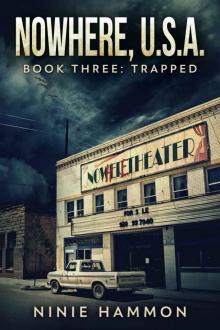 Trapped (Nowhere, USA Book 3)
Trapped (Nowhere, USA Book 3)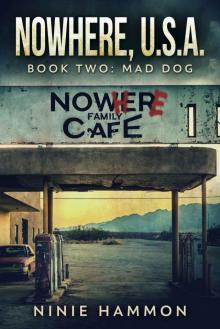 Mad Dog (Nowhere, USA Book 2)
Mad Dog (Nowhere, USA Book 2) Black Water
Black Water Nowhere USA: The Complete Series: A Psychological Thriller series (Nowhere, USA)
Nowhere USA: The Complete Series: A Psychological Thriller series (Nowhere, USA)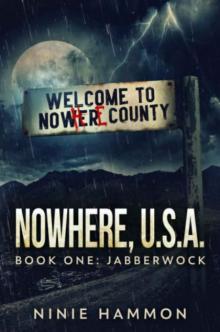 The Jabberwock
The Jabberwock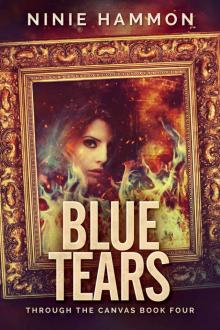 Blue Tears
Blue Tears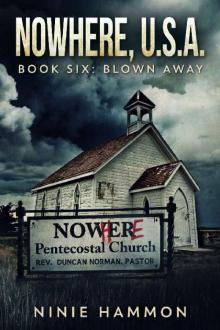 Blown Away (Nowhere, USA Book 6)
Blown Away (Nowhere, USA Book 6)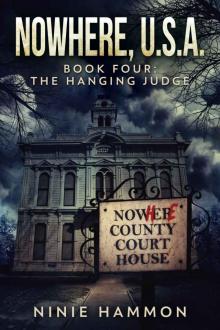 The Hanging Judge (Nowhere, USA Book 4)
The Hanging Judge (Nowhere, USA Book 4)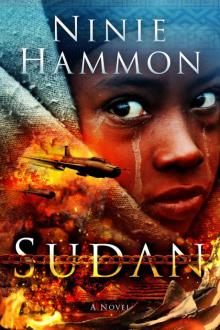 Sudan: A Novel
Sudan: A Novel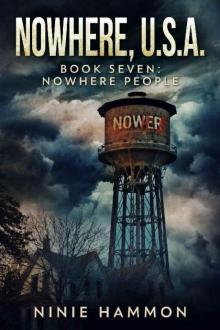 Nowhere People (Nowhere, USA Book 7)
Nowhere People (Nowhere, USA Book 7)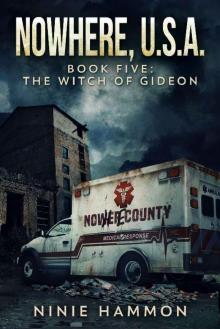 The Witch of Gideon (Nowhere, USA Book 5)
The Witch of Gideon (Nowhere, USA Book 5)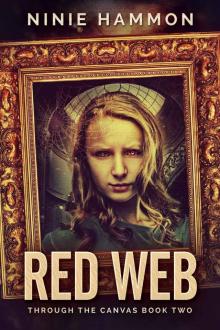 Red Web
Red Web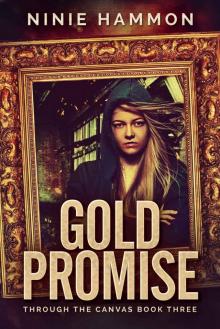 Gold Promise
Gold Promise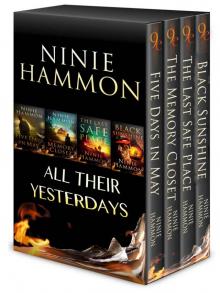 All Their Yesterdays
All Their Yesterdays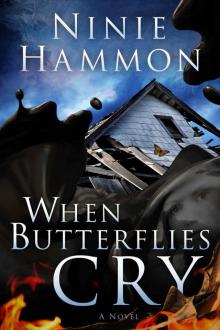 When Butterflies Cry: A Novel
When Butterflies Cry: A Novel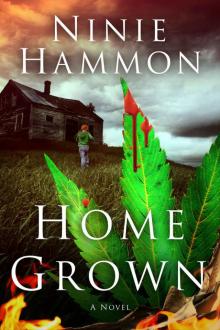 Home Grown: A Novel
Home Grown: A Novel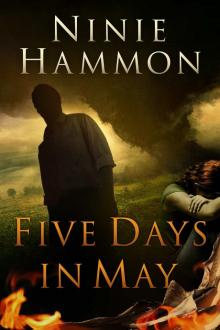 Five Days in May
Five Days in May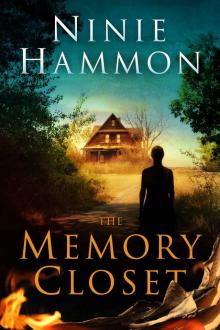 The Memory Closet
The Memory Closet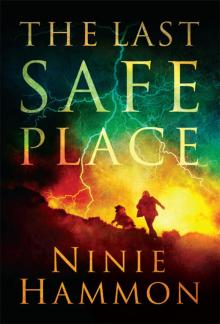 The Last Safe Place
The Last Safe Place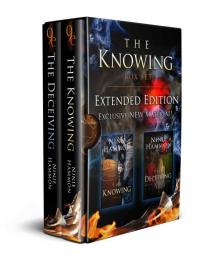 The Knowing Box Set EXTENDED EDITION: Exclusive New Material
The Knowing Box Set EXTENDED EDITION: Exclusive New Material